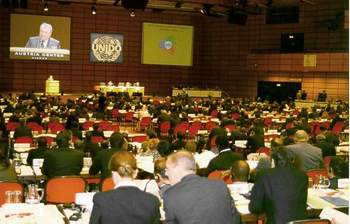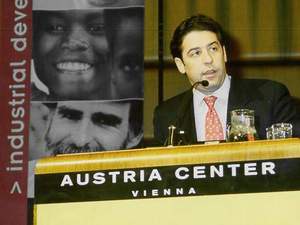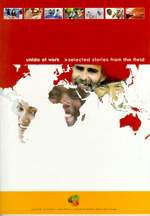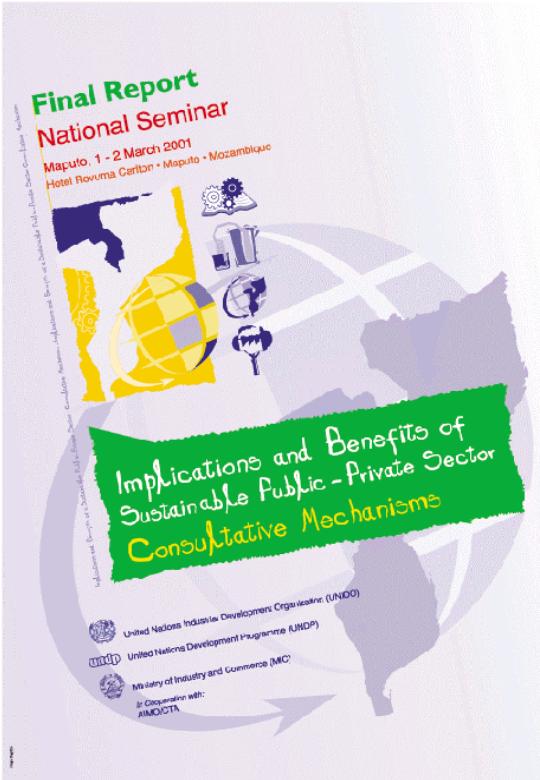| (Vienna, Austria, 3 - 7 December, 2001) The Ninth Session of the UNIDO General Conference took place in Vienna, Austria from 3 - 7 December, 2001. The fifth of December was devoted to the Industrial Development Forum. The biennial Conference brought together UNIDO's governing body of 169 member states and top-level ministerial delegations. UNIDO Director- General, Carlos Magariños, formally opened the session, after which the Vice-President of Guatemala, Mr. Juan Francisco López Reyes, assumed the presidency of the Ninth Session.
Looking ahead to 2002-2005 The Conference reviewed a medium-term programme framework for 2002 to 2005 and reaffirmed the Business Plan on the Future Role and Functions of UNIDO. This Plan was introduced in 1997 and remains the basis for the organizational and programmatic transformation of UNIDO, grouping its activities into two areas of specialization: strengthening of industrial capacities and cleaner and sustainable industrial development. In the further implementation of the Business Plan, the Conference suggested that UNIDO?s industrial capacity-strengthening work should focus on areas such as institutional capacity-building for the application of technical standards, investment promotion and technology transfer for enhanced productivity and competitiveness, small and medium enterprise (SME) development, closer north-south cooperation and the extension of technology foresight activities. In the field of cleaner and sustainable industrial development, among the priority areas singled out for particular attention by UNIDO were cleaner production, energy issues in LDCs and economies in transition in particular and the promotion of international instruments including the Kyoto and Montreal Protocols and POPs convention. UNIDO and the international community as a whole acknowledge that, in addition to inadequate productive capacities, failure to comply with international standards and requirements constitutes an obstacle to the expansion and diversification of exports from developing countries. Using its strengths in the areas of certification and accreditation, UNIDO will intensify its trade facilitation initiatives, building on its recently launched programme ? Enabling Developing Countries to access Markets?. The objective is to assist in the creation of the physical and institutional capacity and infrastructure required to enable exportable products from developing countries to become part of the global trading system. Finally, there was consensus also on a concentration of UNIDO's efforts in order to achieve the international development targets of the Millenium Declaration (2000). In his address at the closing session of the Conference, the Director-General recalled that poverty is a global problem with local roots and must be addressed locally by the international community and stressed that considerable efforts must be made to ensure a more equitable distribution of the benefits of technical progress in order to best facilitate the economic integration of LDCs into the world economy.
In addressing the role of investment, technology and trade in promoting industrial and economic development in a globalizing world, the panellists concluded that technology and liberalization were the prime forces driving globalization. Technological innovation rather than capital accumulation was seen as the main source of long-term sustainable growth. In order to overcome the threat of marginalization, developing countries should be enabled to mobilize the key ingredients of productivity-based growth, namely information, knowledge, skills and technology by drawing on international trade, capital/ investment and technology flows. On the subject of global norms and standards in the context of development, it was agreed that developing countries should be provided with the capacity to participate more fully in international trade agreements and environmental conventions. The discussion also highlighted the critical role of development agencies, and UNIDO in particular, in guiding productivity-based growth in the developing world and promoting ?workable? globalization. The panels also concluded that UNIDO?s strategies should be differentiated to ensure that development objectives can be achieved according to prevailing conditions in individual groups of developing countries, and that the Organization?s activities to strengthen industrial capacities should strongly reflect environmental protection issues and concerns.
|



 Agustin Stellatelli, Tel: +43 1 26026/3477, E-mail:
Agustin Stellatelli, Tel: +43 1 26026/3477, E-mail: 






















